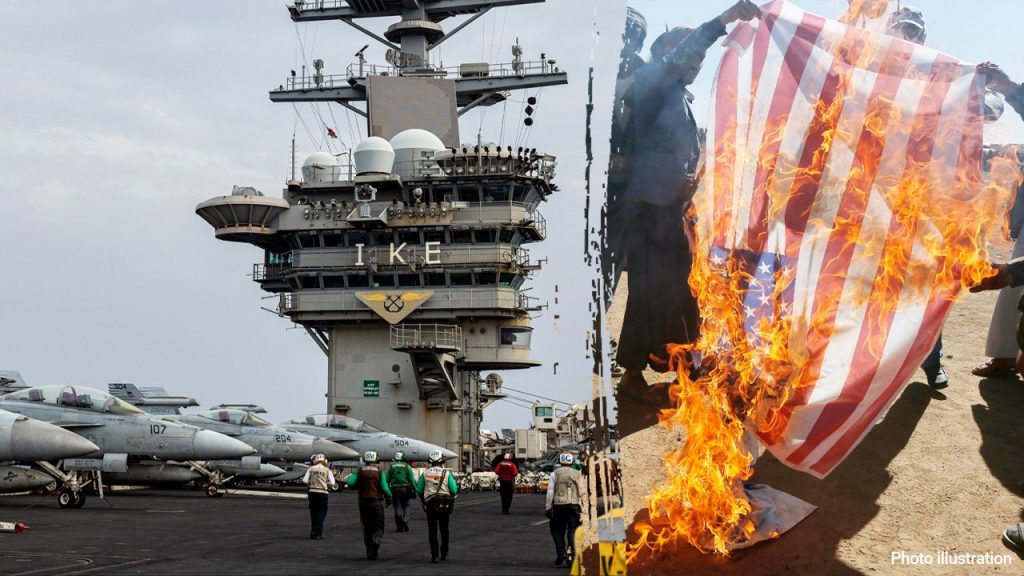Military commanders have publicly expressed their concerns about the U.S. military’s response to the Houthis’ threats in the Red Sea, calling for a stronger reaction to Iran’s support for the group. By imposing costs on Iran for supporting the Houthis, the attacks can be deterred. There are also calls for a whole-of-government approach, including diplomatic and economic pressure in addition to military action, to dissuade the terrorist group from targeting shipping vessels in the region. The current policies are deemed ineffective, and there are worries that continuing on this path could result in U.S. service members being put in harm’s way.
The Houthis have attacked shipping vessels in the Red Sea, causing disruptions for vessels from various countries and endangering the lives of crewmen. Despite claiming to target ships doing business with Israel, their attacks have affected vessels from many nations. The U.S. has implemented a whole-of-government approach to address the situation, including sanctions and labeling the group as a terrorist organization. The aim is to convey to the Houthis that they will face consequences if they do not cease their illegal attacks, which have negative impacts on regional economies, the environment, and the delivery of humanitarian aid to Yemen and other countries. Despite these efforts, the attacks continue to pose a significant threat.
The conflict with the Houthis has been described as one of the most intense sea battles, with the group launching frequent attacks, including missiles and drones. The seriousness of the situation is emphasized by the need to remain vigilant, as a single successful attack by the Houthis could have devastating consequences. Recent attacks on ships, including a Greek-flagged oil tanker, have raised concerns about the group’s capabilities and intentions. The U.S. Central Command has taken action to destroy Houthi drones and vessels that posed a threat to U.S. and coalition forces in the region.
Suggestions for more aggressive strategies to address the threat posed by the Houthis have been put forward, but concerns about potential Iranian responses have led to a decision not to pursue these options. The National Command Authority must balance the need for a robust response with the risks of escalating tensions with Iran. Moving forward, it is likely that the U.S. will need to consider more aggressive actions to effectively counter the threat posed by Iranian-backed groups like the Houthis. The U.S. Navy has not provided a response to these concerns, but the National Security Council has denied claims that fears of an Iranian response have prevented a more aggressive policy.
Military commanders have called for a stronger response from the U.S. regarding Iran’s support for the Houthis, as the current approach is deemed ineffective. Concerns have been raised about the potential consequences of allowing the attacks to continue unchecked, with Gen. Michael Kurilla asserting that U.S. service members could be at risk if the current policies are maintained. The conflict with the Houthis in the Red Sea continues to escalate, with frequent attacks on shipping vessels raising concerns about the group’s capabilities and intentions. More aggressive strategies have been suggested, but concerns about escalating tensions with Iran have led to caution in pursuing these options.


